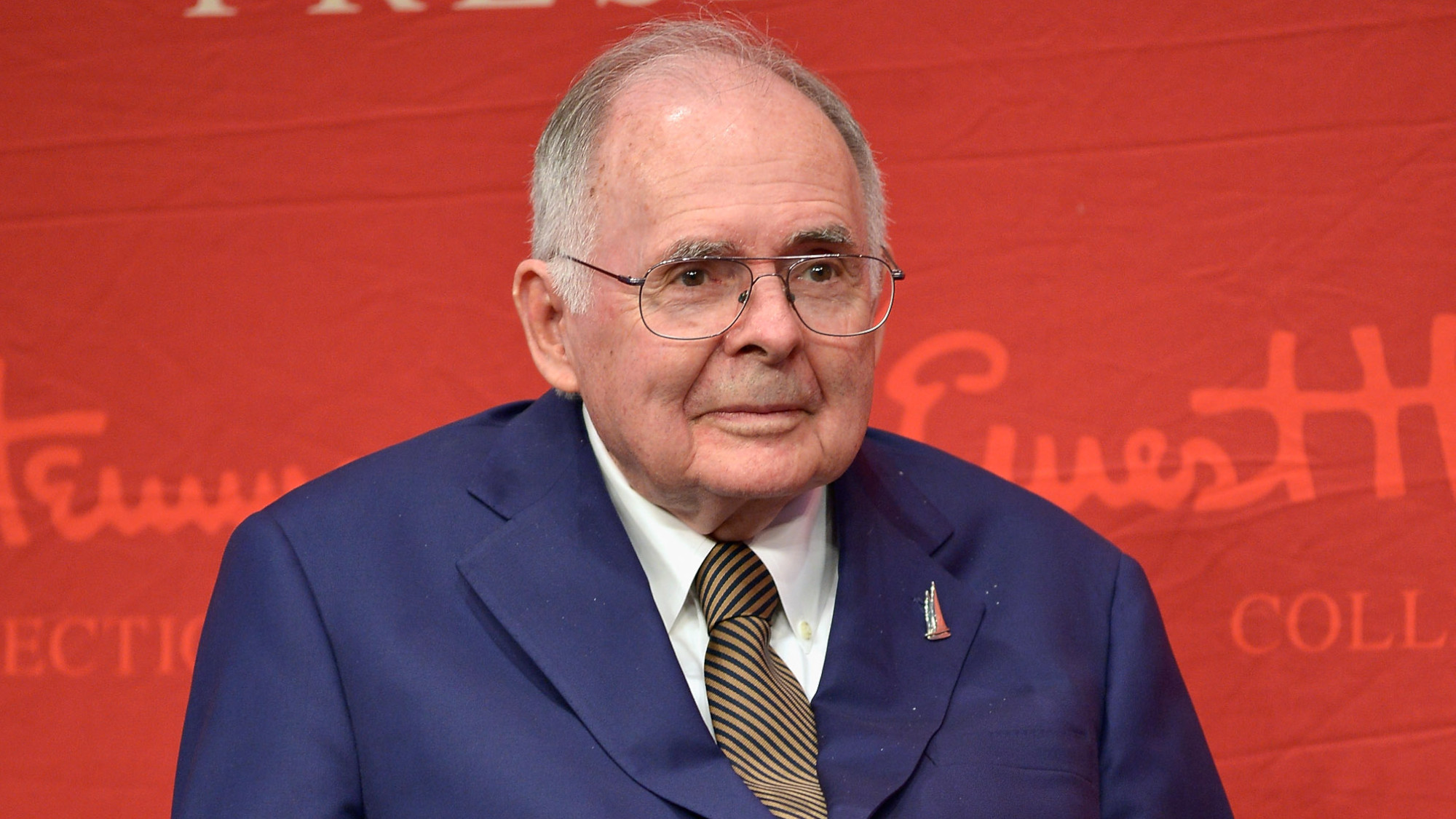Eugene Patterson, 1923–2013
The Southern editor who fostered racial equality
A free daily email with the biggest news stories of the day – and the best features from TheWeek.com
You are now subscribed
Your newsletter sign-up was successful
During the most tumultuous and violent years of the civil rights struggle, Eugene Patterson stood out as a voice of reason and conscience. As editor of The Atlanta Constitution from 1960 to 1968, he wrote thousands of columns—many addressed directly to fellow white Southerners—setting out the campaign for desegregation in clear moral terms, and explaining that the sky wouldn’t fall if his readers embraced equal rights. “I see what you’re trying to do,” one reader objected. “You’re trying to make us think that we’re better than we are.”
Patterson was raised on a Georgia farm and served as a tank platoon commander in Europe during World War II, which he described as the formative experience of his life. It offered him an escape from the segregationist South and “let him see, in a foreign setting, where race hatred inevitably led,” said The Atlanta Journal-Constitution. After the war, he worked as a reporter for small-town newspapers in Texas and Georgia, and in 1953 was hired as London bureau chief for the United Press. There Patterson wrote his most famous news lead, reporting on the unexpected survival of a well-known American author who had crashed his plane in Uganda: “Ernest Hemingway came out of the jungle today carrying a bunch of bananas and a bottle of gin.”
Patterson joined The Atlanta Constitution in 1956, and was appointed editor four years later. While other Southern editors were reluctant to cover the civil rights movement, Patterson used his daily column to force “a people with traditions of decency” to face up to the horrors of racism, said The New York Times. His most famous column, titled “A Flower for the Graves,” ran on Sept. 16, 1963, the day after white extremists bombed an African-American church in Birmingham, Ala., killing four young black girls. “A Negro mother wept in the street Sunday morning in front of a Baptist church in Birmingham,” the piece began. “In her hand she held a shoe, one shoe, from the foot of her dead child. We hold that shoe with her. Every one of us in the white South holds that small shoe in his hand.” Writing that column, he later said, “was the only time I was absolutely sure I was right.”
The Week
Escape your echo chamber. Get the facts behind the news, plus analysis from multiple perspectives.

Sign up for The Week's Free Newsletters
From our morning news briefing to a weekly Good News Newsletter, get the best of The Week delivered directly to your inbox.
From our morning news briefing to a weekly Good News Newsletter, get the best of The Week delivered directly to your inbox.
In 1968, Patterson left The Atlanta Constitution to join The Washington Post, and in 1972 became editor of the St. Petersburg, Fla., Times. He remained “the consummate newsman,” said the Post. In 1976, he insisted that news of his arrest on a drunk-driving charge appear on the front page of the Times,to prove that the paper could be as tough on its own as it was on others. Patterson retired in 1988, but never stopped working. “One of his final projects was cutting 600,000 words from the King James Bible,” said the Associated Press. “He reasoned that the Bible is full of great stories that are hard to follow.”
A free daily email with the biggest news stories of the day – and the best features from TheWeek.com
-
 The ‘ravenous’ demand for Cornish minerals
The ‘ravenous’ demand for Cornish mineralsUnder the Radar Growing need for critical minerals to power tech has intensified ‘appetite’ for lithium, which could be a ‘huge boon’ for local economy
-
 Why are election experts taking Trump’s midterm threats seriously?
Why are election experts taking Trump’s midterm threats seriously?IN THE SPOTLIGHT As the president muses about polling place deployments and a centralized electoral system aimed at one-party control, lawmakers are taking this administration at its word
-
 ‘Restaurateurs have become millionaires’
‘Restaurateurs have become millionaires’Instant Opinion Opinion, comment and editorials of the day
-
 Catherine O'Hara: The madcap actress who sparkled on ‘SCTV’ and ‘Schitt’s Creek’
Catherine O'Hara: The madcap actress who sparkled on ‘SCTV’ and ‘Schitt’s Creek’Feature O'Hara cracked up audiences for more than 50 years
-
 Bob Weir: The Grateful Dead guitarist who kept the hippie flame
Bob Weir: The Grateful Dead guitarist who kept the hippie flameFeature The fan favorite died at 78
-
 Brigitte Bardot: the bombshell who embodied the new France
Brigitte Bardot: the bombshell who embodied the new FranceFeature The actress retired from cinema at 39, and later become known for animal rights activism and anti-Muslim bigotry
-
 Frank Gehry: the architect who made buildings flow like water
Frank Gehry: the architect who made buildings flow like waterFeature The revered building master died at the age of 96
-
 R&B singer D’Angelo
R&B singer D’AngeloFeature A reclusive visionary who transformed the genre
-
 Kiss guitarist Ace Frehley
Kiss guitarist Ace FrehleyFeature The rocker who shot fireworks from his guitar
-
 Robert Redford: the Hollywood icon who founded the Sundance Film Festival
Robert Redford: the Hollywood icon who founded the Sundance Film FestivalFeature Redford’s most lasting influence may have been as the man who ‘invigorated American independent cinema’ through Sundance
-
 Patrick Hemingway: The Hemingway son who tended to his father’s legacy
Patrick Hemingway: The Hemingway son who tended to his father’s legacyFeature He was comfortable in the shadow of his famous father, Ernest Hemingway